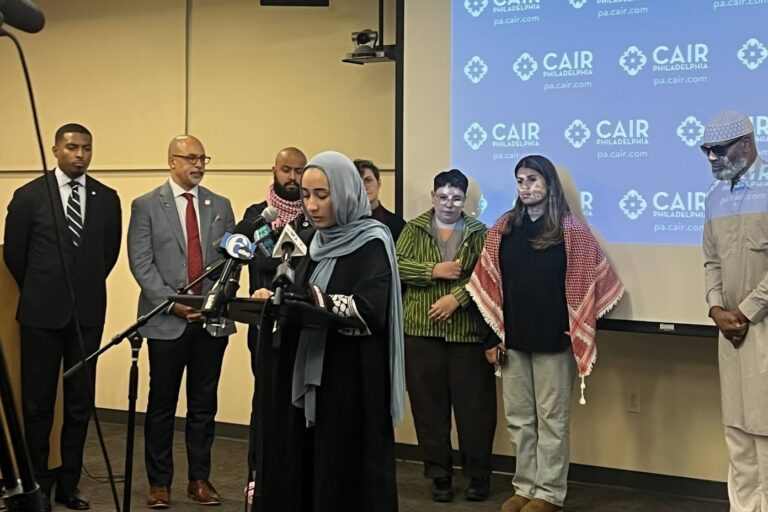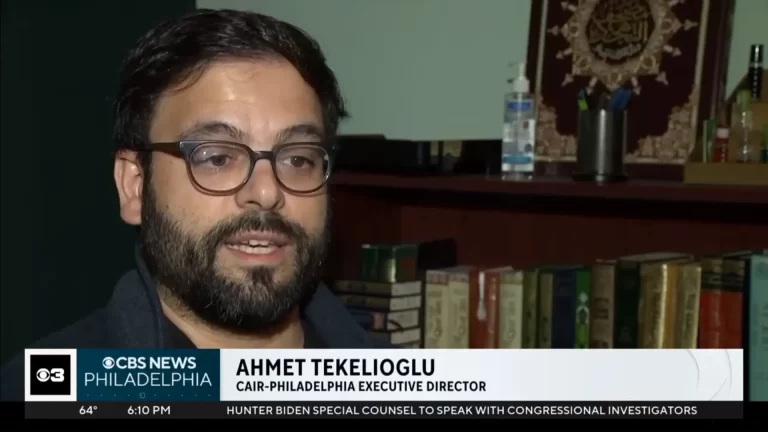![]()
by Dwight Ott
The Philadelphia Tribune
Muslims nationwide hope America will move on in wake of bin Laden’s death
Imam Suedwedin Muhammad, of Mesjid Muhammad in Germantown, was annoyed by all of the hype, fanfare and gloating over the death of Osama Bin Laden.
“He’s been dead [a week] now. Let’s move on,” Muhammad said last week when contacted by the Tribune for a statement about the terrorist.
The Imam also said he felt there was too much focus on bin Laden’s fate when the real dangers to his congregation still remain — problems such as unemployment, foreclosures and homicides of Black males. He said he was tired of getting calls all week long about bin Laden.
“We’re broke and poor. Bin Laden was a billionaire (it was estimated at one time he was worth $350 million),” he said, alluding to the gap between bin Laden’s resources and those of many Blacks and Muslims in his community who have to struggle with daily poverty and other forms of faceless terror.
“Blacks are not worried about bin Laden. I don’t want to comment on no story about bin Laden. …I’m fed up with the whole thing. Even George Bush didn’t want to come to the party [a 9/11 memorial service] when the president invited him.”
Muhammad insisted that, instead, what was needed were more stories about efforts to combat daily violence through programs like that at his own mosque in Germantown. He said more attention should be paid to the Muslim community’s efforts to reach out to feed people, and keep youths out of trouble with activities like a community oriented boxing program.
But this is not to say that Imam Muhammad was not concerned about terror and terrorists. Muhammad himself has spearheaded an effort in his own community to scrutinize new converts and others who might attempt to do harm in the name of Islam.
With these measures, he said, he wanted to weed out those who might “hijack” Islam with a foreign agenda and mislead young converts into committing hostile acts.
He called his effort the “Third Resurrection,” in deference to former Islamic leader Wallace D. Muhammad who launched a “Second Resurrection” to help eradicate previous abuses.
Muhammad said part of his mission in the “The Third Resurrection” is to expose those who may seek to use Islam as a sort of Trojan horse to smuggle criminals or radicals onto the streets of the U.S.
“The party’s over,” Muhammad said at the time of his launching of his Third Resurrection. “They [the converts] wear the garb but they are going to have straighten up their behavior,” he said at the time
While Muhammad said he did not want to be drawn into an “irrelevant conversation” about Bin Laden, his points were reinforced by the harsh reality that al Qaida is known to prey on youths around the world who are afflicted by poverty, unemployment or some other social problem.
Apparently, bin Laden and company planned to rely on such conditions in the African-American community in the U.S. to recruit terrorists. One official told ABC News that, “Al Qaeda sees the Black [Muslim] convert community as ripe for recruiting.”
Indeed, Bin Laden sought to cripple the United States not only through persistent terror attacks, but also by attempting to inflame race and class tensions in hopes of tearing down the country from the inside out, according to one official who saw some of the documents retrieved from the al Qaida leader’s Pakistan compound.
According to the documents, bin Laden planned to specifically recruit African-American Muslim converts to carry out attacks in the U.S.
And the goal was to not only to kill and maim in the actual operations, but also to create a divisiveness that would cause more damage than al Qaida could ever hope to do on its own.
But Muslim-Americans like Ibrahim Hooper, national communications director for the Council on American-Islamic Relations (CAIR), said such a plan would not have worked since it displayed a fundamental “misunderstanding” of American society.
Ironically, convicted murderer Charles Manson had concocted a similar plot during the deadly “Helter Skelter” murder spree in the late 1960s. But the scheme never came to fruition.
“I think the viewpoint reflects more of a Neo-Nazi, white supremacist outlook on American whites than anything based in reality,” said Hooper. “I think it’s fantasy based on a fundamental misunderstanding of American society.”
The Rev. Al Sharpton similarly contended that such thinking was “cynical” and misguided.
Additionally, the reaction of most Muslims to bin Laden’s death was quieter and more sober than some Americans who actually danced in the streets upon hearing the news. Though they did not celebrate, some Muslims expressed the view that the death could usher in a new era for American-Islamic relations.
“In a general sense it’s relief,” said Moein Khawaja, executive director of CAIR. “He was a major threat, who tarnished and smeared our entire faith.”
Will bin Laden’s death spell the end of America’s Muslim paranoia? Muslims are hoping it will since it wasn’t until after 9/11 that they began to be scrutinized and suspected in the U.S. amid growing hostility.
“You’ve got your man,” said Imam Marc Manley, “can we now address this Islamaphobia and religious profiling, and stop pulling Imams off flights. Why aren’t things getting better?”
Four Imams, viewed as threat by passengers, were pulled off two separate airplane flights last week; and a malicious message was recently spray-painted on a sign outside a mosque.
Khawaja, of CAIR, said that while his community was braced for incidents, so far in Philadelphia last week there were no major incidents other than school kids calling Muslims names.
Philadelphia has long been considered a city that is hospitable to Islam. At least 300,000 Muslims are estimated to live in the area.
“We don’t want to be permanent suspects,” Philadelphia Imam Manley.
In a posting on Twitter in Dearborn, Mich., Linda Sarsour put it a different way. “Osama Bin Laden is dead,” she tweeted. “Good, now can I get my identity back? 10 yrs is a long time. Can being Palestinian and Muslim be cool again?”





